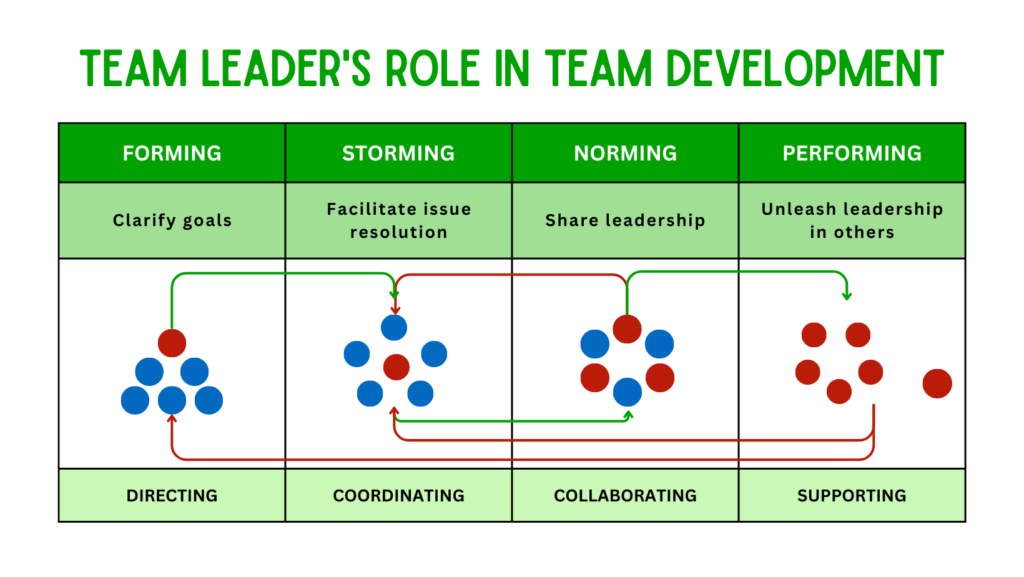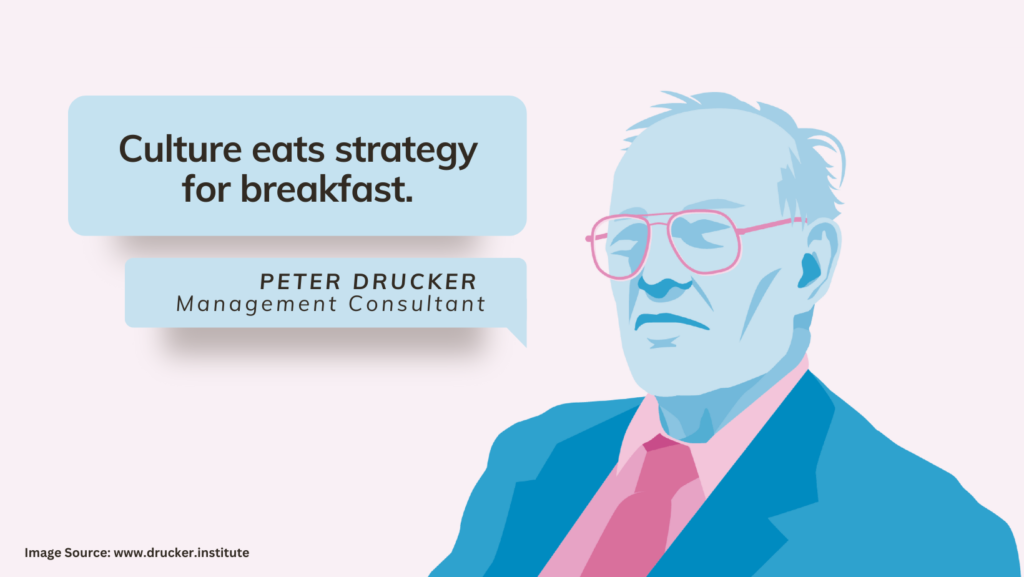Let’s dive right into something that’s been on my mind lately – the undeniable fact that our teams are never really “done.” Yes, you heard me right. The concept of ‘you’ve built it, now it’s set in stone’ simply doesn’t cut it when it comes to team development. The moment, you think your team is built, and does not need maintenance, it may start crumbling
Remember Tuckman’s stages of forming, storming, norming, and performing? Well, it’s not exactly a neat little checklist that you check off and forget about. Imagine it more like a cha-cha – two steps forward, one step back, and then a twirl into the next phase. The journey to team excellence is a dynamic cycle, not a one-way street. One day you see your team perform swimmingly, the next day, they are bickering their way back to the storming stage. This is why it’s unwise to assume that once a team has achieved the performing stage, it will remain there indefinitely. Factors such as changes in team composition shifts in organizational goals, or external challenges can throw a team off balance. Therefore, viewing team development as a continuous cycle of growth and adaptation is imperative.

Now, let’s talk about the elephant in the room – communication. If there’s one thing that can send your team’s progress spiraling, it’s miscommunication. Communication is the backbone of effective teamwork, yet it’s also one of the most challenging aspects to master. Misunderstandings, lack of clarity, and misaligned expectations, advertently, and inadvertently hurt feelings can create rifts within a team, leading to disruptions in productivity and collaboration. It’s like trying to dance to different tunes – chaos ensues. We need to keep a vigilant eye on how our team talks (or sometimes doesn’t talk) to each other. Regular check-ins and honest feedback sessions are our secret weapons here. Remember, just like a dance partner, communication needs constant tuning to stay in sync. Remember, communication is not a one-time fix but an ongoing effort that requires continuous refinement. At ExeQserve, we regularly review our communication norms, and how to interpret and practice it because we recognize how hard it is and how much effort is needed to make it work.
And oh boy, let’s take a minute to chuckle at the idea of once-a-year team-building events. It’s like expecting a single workout session to keep you fit for the whole year – preposterous, right? Those events might give a temporary high, but without a doubt, the buzz fizzles out as reality sets in. Instead of treating team development as a sporadic event, consider embracing an approach that treats it as an ongoing team dynamic review process. Just as Kaizen emphasizes continuous improvement in manufacturing processes, teams should engage in a never-ending cycle of “Plan-Do-Check-Act” for their development. Each team-building initiative should build upon the previous one, creating a thread of growth and evolution.

Remember that quote, “Culture eats strategy for breakfast?” Well, it’s not just some snazzy phrase. Culture is the rhythm that guides our dance. A team with a healthy culture can face a sudden storm and still rock that dance floor. So, keep an eye on that culture – it’s not a set-and-forget thing either. It’s more like tending to a garden. You water, you prune, and you nurture. Regular culture check-ins should be as common as your morning coffee.

In a nutshell, Building and nurturing a high-performing team is a continuous journey, not a destination. The four stages of team development are not a fixed sequence, but rather a fluid dance that requires constant attention. Communication is the glue that holds teams together, and a healthy team culture is the driving force that propels them forward.
By shifting from sporadic team-building events to a mindset of continual development, teams can ensure they are always evolving, improving, and adapting to the ever-changing business landscape. Like a well-practiced Kaizen cycle, this approach will lead to sustainable growth, enhanced collaboration, and ultimately, extraordinary results. Remember, you don’t stop building your team – you empower them to rise to new heights, day after day.








